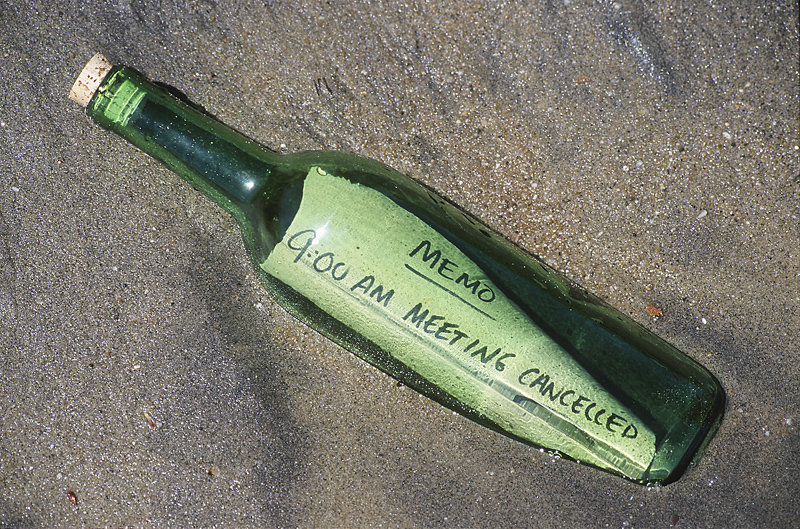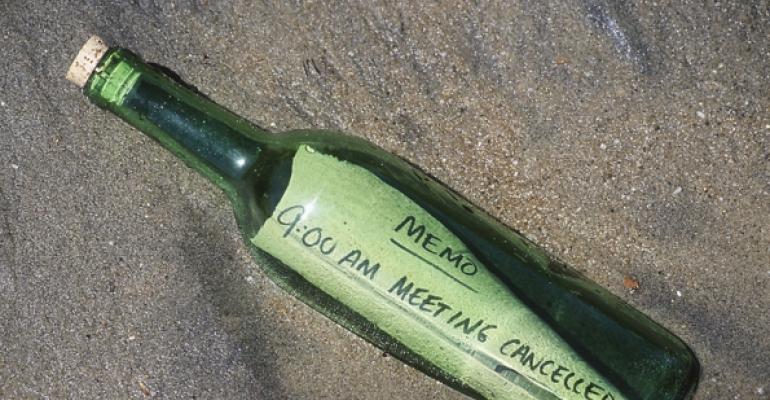 Did you take a vacation this summer? I did, though June seems like a decade ago. And while we were merrily sailing around the British Virgin Islands on our charter boat, I found myself constantly looking for those sweet spots where I could access AT&T to check my e-mail. And at least daily we'd run the hot-spot on our boat so we could catch up with our RSS feeds and other work-related stuff. It's a sickness, I know, but one we share with almost 60 percent of our fellow Americans, according to a recent study by cloud network provider Pertino. And we're not just crazed workaholics either.
Did you take a vacation this summer? I did, though June seems like a decade ago. And while we were merrily sailing around the British Virgin Islands on our charter boat, I found myself constantly looking for those sweet spots where I could access AT&T to check my e-mail. And at least daily we'd run the hot-spot on our boat so we could catch up with our RSS feeds and other work-related stuff. It's a sickness, I know, but one we share with almost 60 percent of our fellow Americans, according to a recent study by cloud network provider Pertino. And we're not just crazed workaholics either.
The study found others had the same reasoning I do, that it's actually less stressful to check in, delete all that spam, put stuff that will need to be dealt with later in the appropriate folders, etc., than to come back to a giant mess like I used to in the pre-smartphone/tablet era.
But it has to be by choice. Another study, this one by online meetings software company TeamViewer, similarly found around 60 percent of people saying they work while on vacation, but almost 90 percent would be a bit peeved if their boss asked them to work, feel disrespected, and worry about the boundaries of their personal lives. Some would pretend they never got the message, while others would get so mad they'd use their vacation to work on their resumes.
Then, to complete the trifecta, we have yet another related study, this one from the American Psychological Association, that looks at how work encroaches on all our free time, not just vacation. The results are pretty fascinating, if also all-too-familiar:
• More than half of us check work messages/e-mail at least once a day on weekends, and the same percentage even does a daily check when we're sick (depends on just how sick I am—if I have a fever, I'm not capable of doing more than laying on the coach moaning and whining!). Men tend to be more compulsive work-message-checkers than women, and they also report more negative effects from it, not surprisingly.
• All this in-touchiness is good in that it gives us flexibility in how and when we get things done, and for more than a third of the respondents, it helps improve the fit between work and non-work life (agree and agree, says she who does all her social media base-touching while watching TV at night).
• The downside, of course, is that we never disconnect from work (says a third of respondents), the technology itself generates more work (spam, anyone?), and we're expected to get things done faster.
I think our willingness to let work overflow into personal time has a lot to do with another thing the study looked at: Whether we find our work energizing (56 percent) and/or meaningful (70 percent). There are times when, frankly, work is a more engaging and interesting option than the other stuff I have going on, which either says great things about my job or terrible things about my non-work life, or both. Hmm. Anyway, this sums up the findings pretty nicely:
Are you able to turn off and tune out, whether chilling in your backyard hammock on a weekend or relaxing on vacation? Or do you, like me, find it less stressful to keep an e-ear on what's going on back at work?


